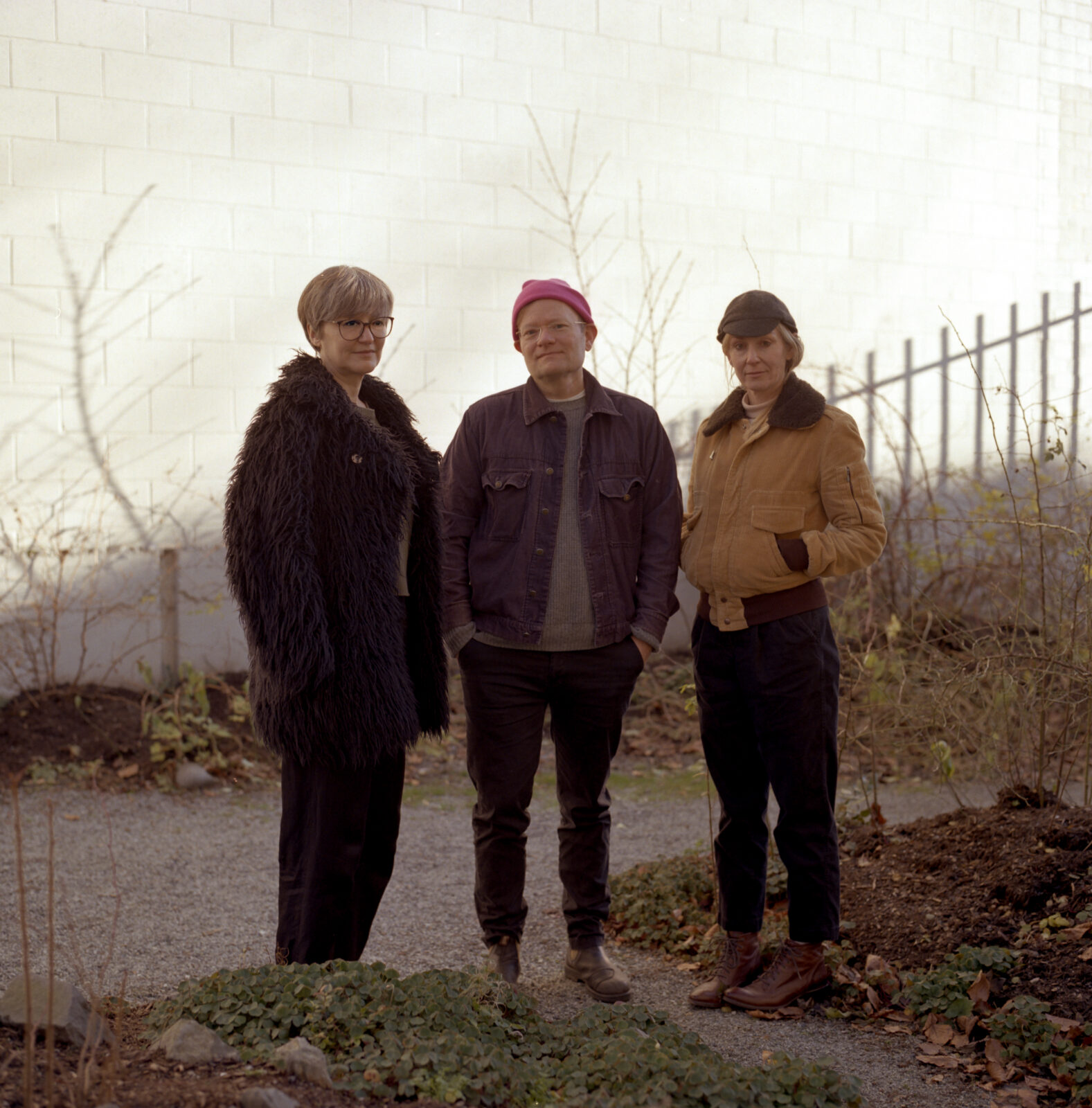Frog Eyes | Interview | New Album, ‘The Bees’
Vancouver-based band Frog Eyes is back. Their foray into making music as Soft Plastics is over. It’s fitting that Frog Eyes — comprising Carey Mercer (vocals, guitar), Melanie Campbell (drums), and Shyla Seller (synthesizer, electric piano) — has chosen 2022 to release their latest album, ‘The Bees’.
This year marks the twentieth anniversary of their debut LP, ‘The Bloody Hand’, a record that defined a moment in the post 9/11 Pacific Northwest music scene.
From the very first guitar riffs on The Bees’ opening track, ‘Rainbow Stew’, one can sense this latest album is an exploration of the past, a synthesis of what came before, a celebration of having developed a singular sound within the confines of rock music. “At some point, I started thinking a lot (too much?) about a very specific kind of pressure put on record producers, music makers, to constantly innovate or reinvent ourselves”, says Carey Mercer. And so, after thinking through the idea that “novelists and painters are allowed to have eras, periods, bodies of work that find a small bit of psychic space and then, over years and decades, testify to the ecology of that space”, Mercer began to write. “So I wrote songs that take in the view of my past, or explore the little stake I have made over the past twenty years of work: I thought of my past as my future, and it felt a bit radical”, he says.
When it came time to record, Frog Eyes chose musician John Raham to engineer the album at Afterlife Studios. “Mel and I worked together to find our old energy, that push-pull trainwreck hustle we used to boogie to”, says Mercer. Once this phase was complete, Frog Eyes then lavished the recording with Shyla Seller’s keyboards, which oscillated between a deep saturated wash and a shimmering granulation.
From the very first guitar riffs on The Bees’ opening track, ‘Rainbow Stew’, one can sense this latest album is an exploration of the past, a synthesis of what came before, a celebration of having developed a singular sound within the confines of rock music. “At some point, I started thinking a lot (too much?) about a very specific kind of pressure put on record producers, music makers, to constantly innovate or reinvent ourselves”, says Carey Mercer.
And so, after thinking through the idea that “novelists and painters are allowed to have eras, periods, bodies of work that find a small bit of psychic space and then, over years and decades, testify to the ecology of that space”, Mercer began to write. “So I wrote songs that take in the view of my past, or explore the little stake I have made over the past twenty years of work: I thought of my past as my future, and it felt a bit radical”, he says.
When it came time to record, Frog Eyes chose musician John Raham to engineer the album at Afterlife Studios. “Mel and I worked together to find our old energy, that push-pull trainwreck hustle we used to boogie to”, says Mercer. Once this phase was complete, Frog Eyes then lavished the recording with Shyla Seller’s keyboards, which oscillated between a deep saturated wash and a shimmering granulation.
The result is ten songs that feel expansive–taking the listener on a whirlwind adventure to meet the ghosts of Frog Eyes past, present, and future–each track possessing the tempo necessary to incite a room filled with people to move. Inertia has no place here. All the energy of previous Frog Eyes records resides in ‘The Bees’, with the track ‘I Was an Oligarch’ a triumphant reclamation of a time when nineteen-year-olds wore white belts and cut the hems of their pants, all for the sake of being able to dance with utter abandonment. The minor-key spells for which Frog Eyes is known are on full display in the track ‘Scottish Wine’:
“These are such sad songs
But why would I write such sad sad songs
Because the memory or the grief or the sunset hits me
And yet its angle is wrong
And so I am compelled to write such sad sad songs.”
Shyla Seller notes that the lyrics of ‘The Bees’ “get across the happiness, shame, and sparks of potential of life at age twenty-one—not in a nostalgic way, but in a way that acknowledges these glorious and embarrassing and fleeting moments as part of who you are today”. Despite the past being an inspiration for the album, the sound is fresh, brimming with the vitality of the here and now.
“And when we came to the end”, Mercer says of the recording process. “It only made sense to return, in name, to what we have always been (the band called Frog Eyes), because can you ever really sound like anything but yourselves?”. With its evocative lyrics, confident instrumentation, and virtuosic ease of sound that only a decades-long collaboration can yield, ‘The Bees’ is the perfect album to herald in a new era.
You have a brand new album just out after four years. What occupied your life in those four years, besides the obvious pandemic?
Carey Mercer: I released a record called ‘5 Dreams’, under the name Soft Plastics. The record was, if I had to reduce it to a few words: about my dreams.
I also kind of went through a weird phase of becoming a music and sound obsessive–the former is new to me. I used to just get my music wherever it was laying around, but I started buying records about 6 or 7 years ago, and also, most uncharacteristically, I became OBSESSED with audio playback. I became really interested in speakers, in particular–our living room was the stage for an endless cycle of obscure or classic speakers, from Quad ESL 57s to old Tannoys to one-off coaxial speakers built by a French speaker maker using a Japanese coaxial driver who, as I recall, died in a helicopter crash. I was transfixed by the ways in which sound changes, transfixed by the mysterious shifting properties of reproduction.
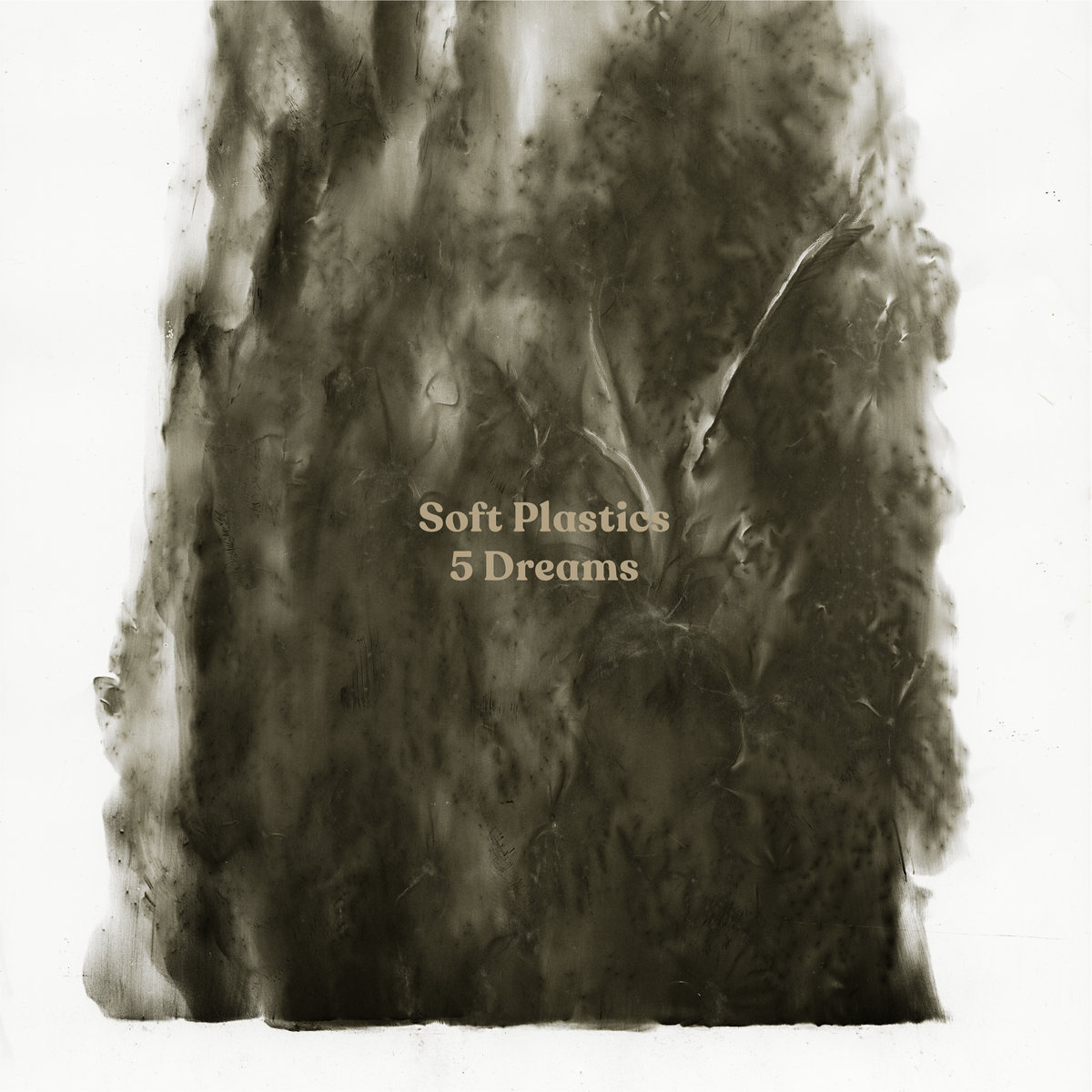
And then it just washed over me and I was done with it.
Tell us how you approach your latest album and did you do anything differently as before?
Well, this process was in some ways the most expedient or time-valuing way we’ve made a record. We just went into a hallowed space, a studio built into a hill in Vancouver, one of the only hallowed spaces remaining in our city, and we let John Raham, the engineer, set everything up, and then laid down some songs and sang them the next day. People say I sound a little different, I say I actually sound the way I should always have sounded.
Would you like to talk about the song on the latest album? I’m sure there must be some interesting story behind a certain song?
There are interesting stories behind all of the songs, and I’ve written a little bit about them. But one thing I was really impacted by, just before Covid hit, was the RCMP invasion of Wet’suwet’un. The RCMP invasion of this Indigenous nation was a vivid experience of miasma for many people here in BC, many settlers. We have, in our province, a kind of questionably-progressive party, and that dissonance produces a lot of stress, a lot of deeply felt emotion when they fall short.
I thought they would tactically stop at funding militarized invasions against land-defenders. I guess I assumed they might have thought, “Will we forever lose the support of ALL those people out there who seem to be committed to the work of reconciliation?” In my circles, yes, they have.
So when I sing, in ‘Everything Dies’, that the “pigs are huddled in the snow, there’s a black spreading pool at the base of their toes”, I’m talking about our collective miasma; my labour funds this invasion, this traumatization.
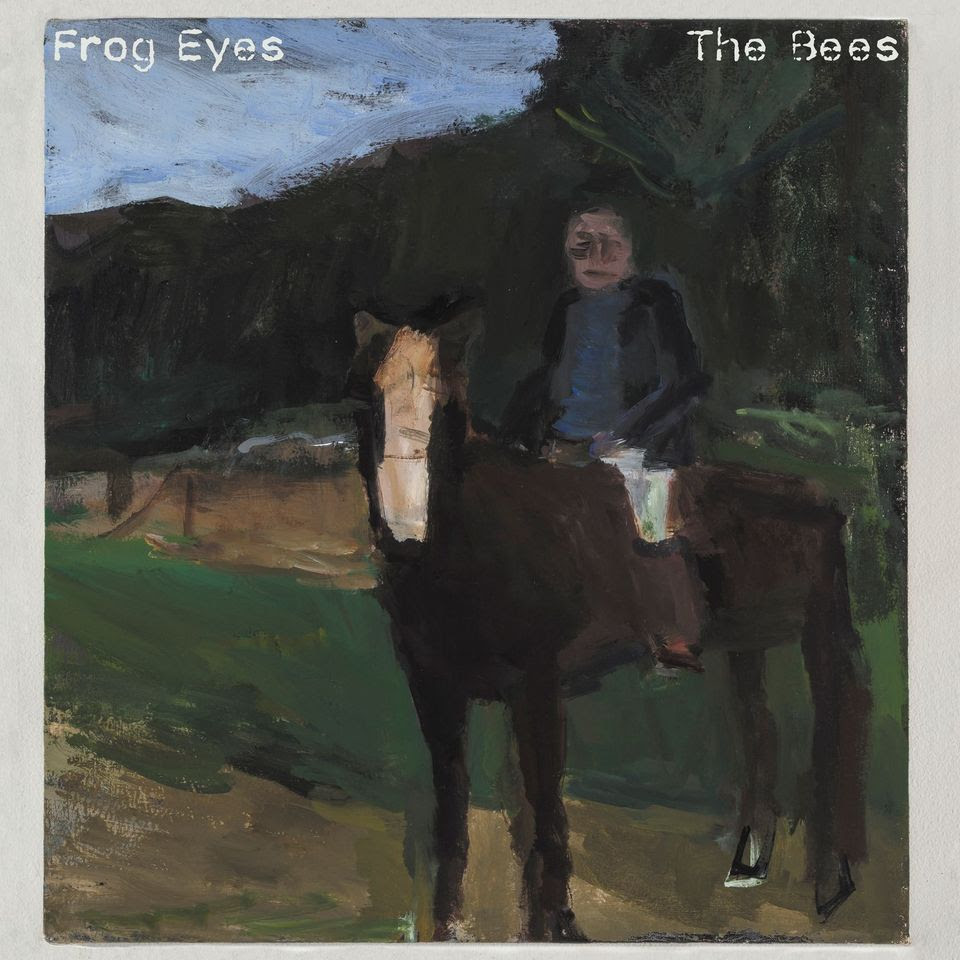
It’s sickening, and I can’t get over it, and I know there are probably what we call “good people” ensconced within the provincial organization that funds the RCMP to gleefully dress up like Tom Cruise in Oblivion, and swoop in on helicopters, and chainsaw through cabin doors with automatic weapons cocked, and further traumatize Indigenous peoples while fake-signing UNDRIP, and kidnap journalists and entomb them for days on end.
And those ministerial “good people” remain silent as details emerge, silent as it comes out that their party was actively supporting this violence, and so in my mind they are brimming with miasma, it leaks out of their ears and eyes. They seem to me, from a distance, in a public sense: utterly polluted human beings. And it’s very sad because they probably are much better than their political rivals, but this miasma is like a brown fog over every good work they might do.
Were you trying to make a certain statement with the release?
I am trying to say something about the importance of looking backwards as a way of shifting how we are.
Did your approach to music-making change? What’s the typical creative process for you these days?
I think with the “last tour” for Frog Eyes, I believe in 2018, I felt like I couldn’t play my guitar as well as I wanted to. So I watched a few videos, just ergonomic tips. I have never had even a minute of a lesson, and don’t read music, and will continue to have a zero theory approach: for me, it creates wonder if I unlock even the simplest idea. But I knew I was holding the neck wrong, so I have started playing with a little more attention to form. I sound better, in my opinion. Sounding better means I play more, and playing just means holding the guitar and coaxing songs out of it.
Can you share some further details on how your latest album was recorded?
I wrote half of the record as computer songs, played to electronic beats, lots of noise and your usual dense hypnagogic soundscape. But when it was time to add some acoustic drums, we felt it was much more satisfying and exciting to just play without the grid. I feel so oppressed by grid-like structures, by the algorithms, that I think it felt a bit freeing.
How pleased were you with the sound of the album?
Pretty pleased, it seems to sound like itself on a variety of systems, from a little JBL speaker the size of my fist to room-pressurizing 12” speakers.
Would you mind talking about the making of ‘The Golden River’? Listening to today, what are some of the strongest recollections?
I wrote a lot of the lyrics on a greyhound bus going over the mountains. I remember remicing the piano through guitar amps, a favourite trick, and doing some singing in the producer’s basement. I remember slow dancing with my partner to one of the songs, ‘A Latex Ice Age’, as I sang it—her hot tears on my neck are seared into my consciousness. It wasn’t the “take”, but it was a very powerful memory.
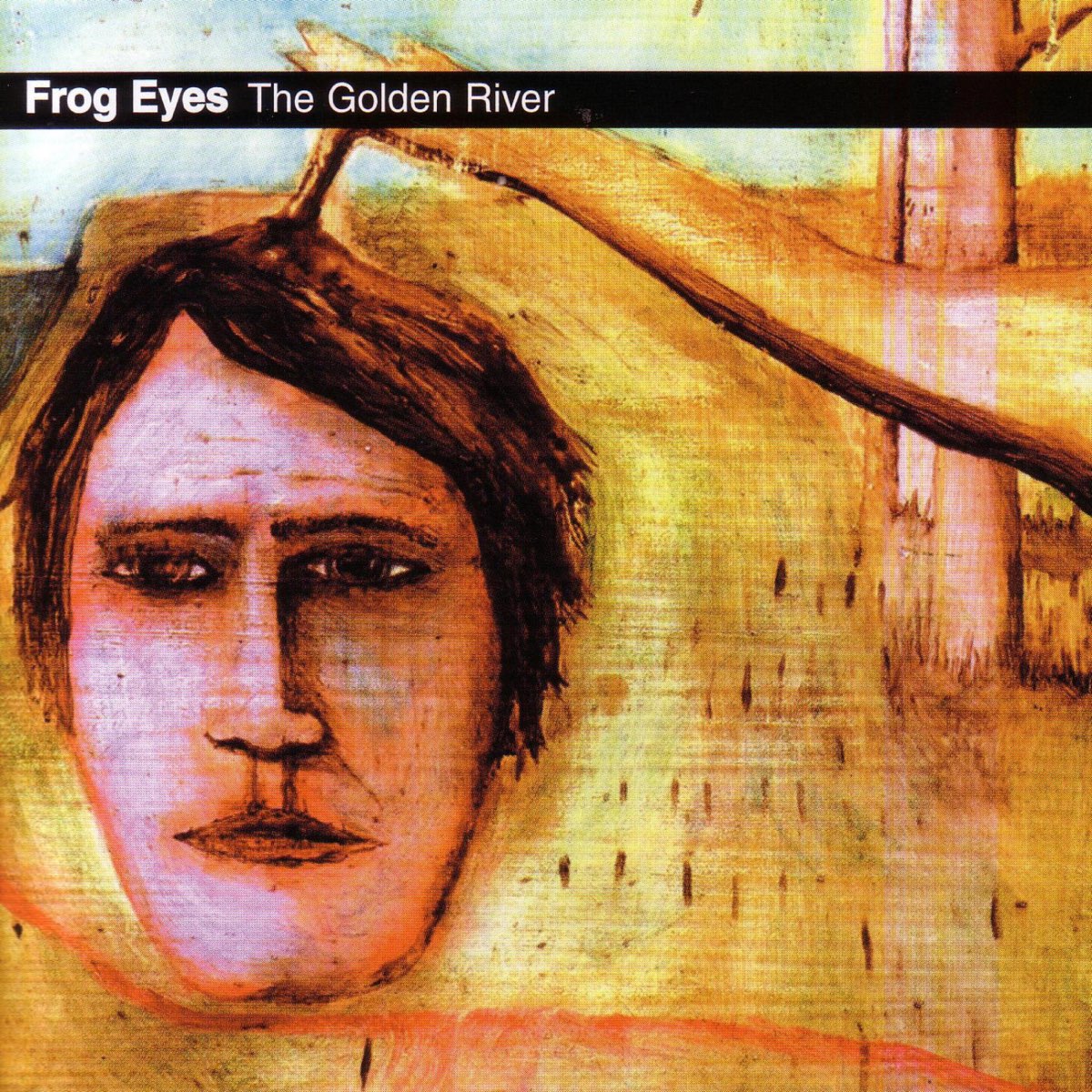
How would you compare it to let’s say ‘Tears of the Valedictorian’?
Well, it was a little less rehearsed. ‘Tears of the Valedictorian’ was made as a result of a few tours—two or three. We played those songs every night for a month on end, so they were seasoned by the reactions of our audiences. I would love to return to that model, but even going on one tour would likely end in us being homeless. The expenses are just stunning. I look back at those years and wonder if they ever existed.
I spit on this new model that says “make your money on the road”. No one is making money on the road, no one is making money off the road, many of the people who devoted their life to music, the sweetest art, are folding up shop: the unanswerable algorithms have a lot to answer for.
And to the people battling it out: I love you for your work.
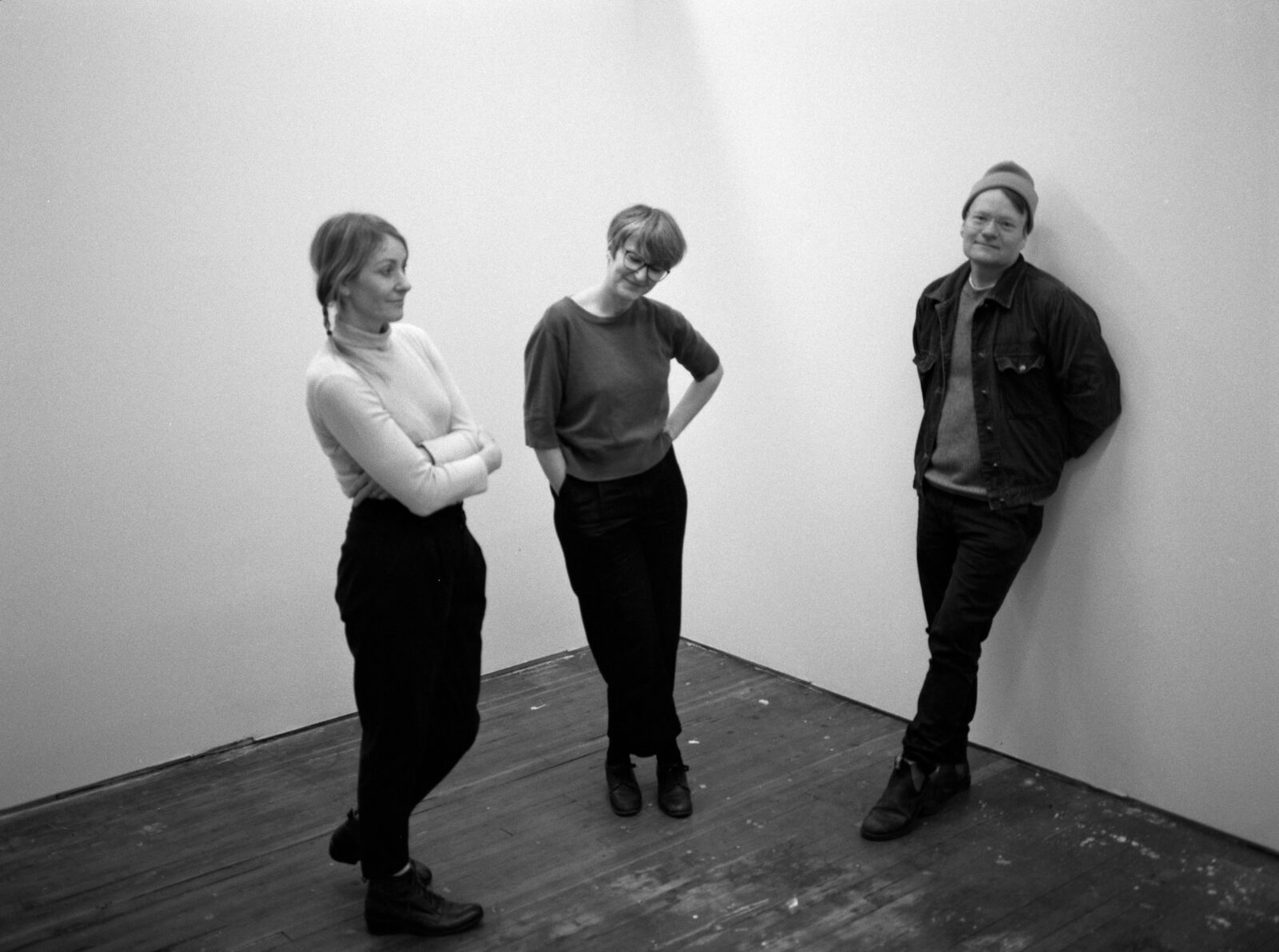
Let’s end this interview with some of your favourite albums. Have you found something new lately you would like to recommend to our readers?
I like a few of these Alabaster Deplume records-I heard one in a local record store, Audiopile, and asked them what it was. It was an older one, but really neat—the lyrics kept hitting me. Jeff Parker was great last month live, so I started listening to his latest, which is very nice, and going back to the ‘Suite for Max Brown’ . I still am listening to the Leslie Winer reissue LP a lot from last year. ‘Memory’s Fool’ by Fortunato Durutti Marinetti is a good one…Oh, and, predictably: Destroyer.
Klemen Breznikar
Headline photo by Soloman Chiniquay
Frog Eyes Facebook / Instagram / Twitter / Bandcamp
Paper Bag Records Official Website / Facebook / Instagram / Twitter / Bandcamp / SoundCloud / YouTube

